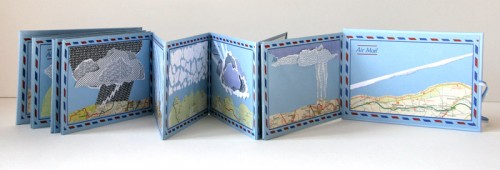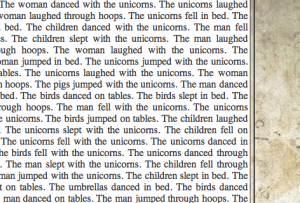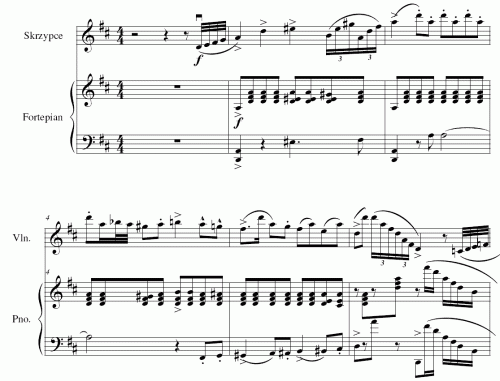Reflections from a Shiny New Creative Writing Teacher
I’m writing this in between grading my (first ever!) students’ second poems. I’ve been teaching for about a month.
One of the first things I learned about teaching: grading takes an ungodly amount of time. There are several steps, which include:
1. Excitedly read through first batch of student poems on the bus home from class.
2. Read poems at home.
3. Read poems aloud to roommate (also a teacher) to make sure you’re not missing something.
4. Write comments on poems in pencil.
5. Worry comments are too prescriptive.
6. Erase comments and try again.
7. Agonize about putting numbers on poems.
8. Briefly consider flaunting university guidelines and not grading poems.
9. Put numbers on poems.
10. Reread poems and compare grades.
11. Hope students read comments instead of just staring at their grades.
An Interview with Andy Frazee
 A literary university press offer exposure for the students; the gap between writer and publisher blurs, has been blurring, as more and more one partakes in the work of the other. Why should an MFA only prepare a person for a profession in teaching? People enroll in ever-growing programs in order to write anyway (right?), not necessarily to teach. Writers, however, thrive with publishers. As mentioned later (in the interview), Ted Berrigan could staple together as many copies of his Sonnets as he likes, but everyone I know owns the copy published by Penguin. Why should this job be left up to a person with a business degree? Expanding an MFA degree to encompass, or at least introduce students to the business of books would not be difficult. Those who write have stakes in that buisness whether or not they are involved, so why not be involved?
A literary university press offer exposure for the students; the gap between writer and publisher blurs, has been blurring, as more and more one partakes in the work of the other. Why should an MFA only prepare a person for a profession in teaching? People enroll in ever-growing programs in order to write anyway (right?), not necessarily to teach. Writers, however, thrive with publishers. As mentioned later (in the interview), Ted Berrigan could staple together as many copies of his Sonnets as he likes, but everyone I know owns the copy published by Penguin. Why should this job be left up to a person with a business degree? Expanding an MFA degree to encompass, or at least introduce students to the business of books would not be difficult. Those who write have stakes in that buisness whether or not they are involved, so why not be involved?
The opportunity to be so involved in a press was exciting. Being part of the working relationship from the inception of making a manuscript into a book was rewarding and something I’m happy to have done. Below is an interview with the 2010 winner for poetry (published in 2011), Andy Frazee, whose book is available on Amazon or SPD.
Other books in 2011 include Alta Ifland’s Death-in-a-Box and Sandra Doller’s Man Years.
More information on Subito can be found on the website.
Stephen Daniel Lewis: One thing that surprised me about The Body, The Rooms was form. Not only that the form steps away from more standard types used in poetry, but the layout morphs section to section; sometimes even within a section the reader will see an evolution of the employed form. It was exciting to see how the usage of space encompasses the content in a way that seems inextricable.
I’m wonder what process led to this? Did the content come first, did it happen the other way around, or was it simultaneous? Also did you have specific reasons in mind for including elements that rarely surface in poetry (such as the explication that undercurrents the poems in the “Cartography” section, and the Dramatis Personae in the section titled “That the World Should Never Again Be Destroyed by Flood”)?
Andy Frazee: In general, content comes before form for me—not in terms of precedence, but in terms of chronology. For the most part, the content first comes in the form of journal entries and notes, which I at some point return to and cull for interesting phrases and ideas. A lot of the language in both “Cartography” and “In this Element of Capture,” for example, came from a series of sketches I’d written trying to re-write Eliot’s “Prufrock.” Both of those sequences have gone through many different formal manifestations, and I think this has a lot to do with my own attempts at trying to restrain an impulse to make the poem too organized, too logical. I often introduce some rudimentary form of chance operations to thwart that impulse—so at a certain point in the evolution of “Cartography” I listed out each individual sentence and dispersed them randomly in four-line sections over several pages. In the end, I go with what my gut tells me works, and that ultimately seemed to.
Regarding Genre by John Warner

Traditionally, the approach to genre in the university-based creative writing classroom has been to ban it outright, arguing that as long as we’re pursuing a degree in a traditional academic setting, we should be in the literature business, which is obviously something different from genre writing.
Obviously.
We declare fantasy off limits, but magic realism is okay. Kelly Link is fine, but Ursula K. LeGuin only sometimes. Science fiction is no good, unless its Vonnegut or Philip K. Dick, or some of Ray Bradbury, in which case, right on! Everyone loves Lord of the Rings, or now, Game of Thrones, but don’t do that. Why? Because.
Harry Potter? Probably not. Chronicles of Narnia? You’re good. Twilight? Don’t make me laugh.
These restrictions never felt comfortable to me, particularly when I used to enforce them in my own classroom while devouring Patricia Highsmith novels at night. The core of my teaching philosophy, regardless of subject, is “freedom.” Students learn more when they’re given the latitude to explore the material in the ways they find most interesting and compelling. This has certainly been my experience in my own learning.
DAVID MITCHELL’S SOUL, AND OTHER VERBS
 March of this year we were in the desert and, like Stephen Crane’s famous creature, we were bestial and squatting; maybe we were naked as well. It’s possible—we were on one drug or another, and memory is strange. I did not hold my heart in my hands but a shotgun. We had bought a box of old records from a flea market on the way down and were taking turns tossing them up in the air and making it rain black diamonds, fragments of song titles and run times. We had liquor, and music, and all five of David Mitchell’s novels—Ghostwritten, number9dream, Cloud Atlas, Black Swan Green, and The Thousand Autumns of Jacob de Zoet. I brought along the audiobook versions as well, as we were staying the night and planned on being too insensate before long to do any actual reading.
March of this year we were in the desert and, like Stephen Crane’s famous creature, we were bestial and squatting; maybe we were naked as well. It’s possible—we were on one drug or another, and memory is strange. I did not hold my heart in my hands but a shotgun. We had bought a box of old records from a flea market on the way down and were taking turns tossing them up in the air and making it rain black diamonds, fragments of song titles and run times. We had liquor, and music, and all five of David Mitchell’s novels—Ghostwritten, number9dream, Cloud Atlas, Black Swan Green, and The Thousand Autumns of Jacob de Zoet. I brought along the audiobook versions as well, as we were staying the night and planned on being too insensate before long to do any actual reading.
Teaching Creative Writing: Syllabus as Story, Story as Scaffolding
A syllabus tells a story. The story I work to make mine tell is, It all fits together.
When I teach an introductory creative writing course, I try to make every one of the course’s components “belong together.” I try to design and arrange these components so that they’re engaged in “conversation”—so that they not only usefully complement one another, but lead to and precede from each other in ways that model process. I’d like, above all, for my students to become consciously and unconsciously aware of how these components are “aware” of their fellow components.
By “course components,” I mean first-day activities, readings, close reading, freewrites, exercises, workshop/peer review, annotations, presentations, conversations, student-teacher conferences, grading rubrics, teaching persona, and the like—anything a teacher builds, administers, moderates, and is responsible for.
But course components that “belong together,” that “converse,” that are “aware”? You might be thinking, “Joe, that’s vague.” Or, “Duh.”
To ground these metaphors, I’d like to offer a term employed by pedagogical scholars, a term you might already be familiar with: scaffolding.
Starting With No
My creative writing pedagogy story starts in the Introduction to Poetry writing workshop I took as a nontraditional student at Florida International University. I signed up for the course because I was convinced that I was the baddest poet that had ever lived. I’d won both of the poetry slams I’d entered. I could rhyme like no one else. I prided myself on being able to write complete sentences where every word rhymed and still made sense. In the first class session, the professor told us that poems don’t have to rhyme and that most contemporary poetry didn’t rhyme at all. She even went so far to say that a good portion of bad poetry written by amateur poets today rhymed. She said rhyming is easy, rhyming well is hard. I was shattered. She hadn’t yet read any of my work, but I took her words personally. Everything I thought I knew about poetry and my ability to write it was destroyed.
Now when I teach my own intro to poetry writing workshops, I am aware of the extra inhabitants in the room—the students’ misconceptions. These misconceptions keep students from attempting to write poetry when they don’t believe they can make a poem do what they believe poetry is required to do. These misconceptions keep them from reading poetry because if they already believe they know what poetry is (and they don’t necessarily like it), why should they read anymore of it? That’s why I feel that my first job as a creative writing instructor is to overcome their false impressions.
Teaching Writing One Skill at a Time
The first principle of a creative writing class should be: you cannot teach everything in one semester, yet the workshop teaching method is based on the mistaken idea that you can.
Much of the research into how people learn suggests that we improve fastest when we can focus on one skill at a time, like a violinist working on one piece of a solo over and over. Students learn quickest when they are offered challenges suitable for their skill level, receive feedback on their performance, and then repeat the task, incorporating the teacher’s advice. These challenges should be both very specific and easily repeatable, like having a golfing coach adjust your stance after every swing. It is harder to improve only by playing many rounds of golf, because the feedback is too varied, too enormous.
The Workshop and Measurability

I want to start from the premise that a student can learn innumerable things from taking a creative writing course. Accepting this premise seems to me the only way to get anything done when we talk about pedagogy—otherwise we aren’t discussing pedagogy, but philosophy. I’m most interested in how we can decide what’s teachable out of the huge amount of learning material available in creative writing, and how we can hold ourselves accountable for having taught it afterward.
Taking the most common structure of the creative writing course as a guide, it seems that most teachers have decided on a few central skills that are “worth learning” about creative writing: reading, discussion of reading, writing, and discussion of writing. And the learning we intend our students to get out of practicing these skills is as clear-cut as in the study of any academic field: Reading is important for gaining information and expanding awareness about the field. Discussing reading is important for coming to a more critical and independent understanding of the field. Writing is important for communicating with others in the field. Discussing writing is important for learning to analyze and evaluate writing, with the goal of communicating more effectively in the field. There are of course many other potential purposes for teaching these things, and it’s hard to argue against the learning value of any of them—but I would argue that as teachers, we need to be much more attentive to these purposes, and much more vigilant about providing the rationales that tie them to the study of creative writing as a whole. There’s no inherent rationale, for instance, that reading has to be a part of learning writing—not until you decide what happens during reading that enhances the skill of writing, and how you can structure a class to provide the practice in and measure the acquisition of that skill.
READ MORE >
On Using Hybrid Texts to Lead the Creative Writing Classroom: Some Notes Toward a Pedagogy
The poet doesn’t invent. He listens. ~ Jean Cocteau
Words are everything else in the world. ~ Wallace Stevens
In the Creative Writing classroom, I don’t teach so much as I lead. Discussions. Close-readings. Deep-readings. Free-writings. Whatever it is, I keep minds attuned to construction rather than destruction. Destruction is better left to the literature classroom, where it has its purpose, surely. We don’t read to answer what or who but rather why and how. We read widely, and we imitate shamelessly; we invent, therefore, with an existing form as backbone before we learn to invent forms of our own. We string words on the page like Christmas lights across the roof; we have purpose and design in mind, but mainly, we just want shit to glow brightly. The goal: limit the variables, at least at first. As we learn to construct within the preconceived frames, we increase the variables beyond simple imitation, and the possibilities to invent then grow considerably. We understand, ultimately, that poetry can exist in many physical shapes, and we strive to keep the language malleable within whatever shape it takes.
Poetgramming
 I have been paying attention lately to the work of Adam Parrish, who teaches occasional courses on programming as it applies to creative writing at NYU. I have not taken this course, but would love to hear from anyone who has. I have been interested lately in the idea of using programming functions as aids to writing fiction and poetry. Some of my recent work has explored the aid of small scripts to randomize and change variables over constant frequencies.
I have been paying attention lately to the work of Adam Parrish, who teaches occasional courses on programming as it applies to creative writing at NYU. I have not taken this course, but would love to hear from anyone who has. I have been interested lately in the idea of using programming functions as aids to writing fiction and poetry. Some of my recent work has explored the aid of small scripts to randomize and change variables over constant frequencies.





